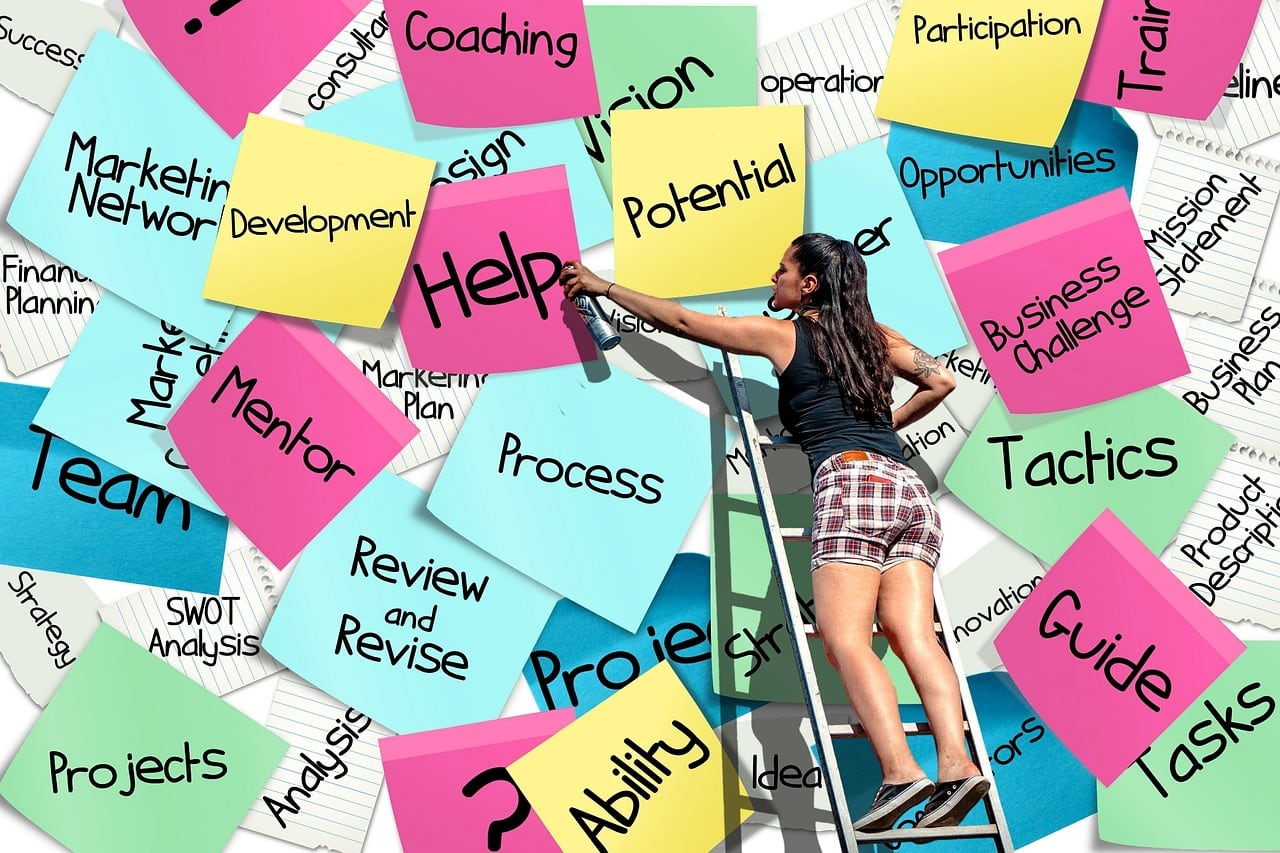How to Master Event Planning Skills: Tips and Tricks for Success

“A successful event is the result of careful planning and creative execution. From conceptualizing ideas to managing onsite logistics, it takes an array of skills to make each event a memorable experience.” Event planning is an art form that requires creativity, organizational savvy, and an eye for detail. It's no wonder why so many people are drawn to this challenging and rewarding field! To plan events effectively, there are several key skills required, including communication, problem-solving, time management, and passion for the industry. This article will explore these essential skills and qualities for successful events.
Key Skills of an Event Planner
Event planning requires a unique set of skills, from organizational savvy to creative solutions for each event. One of the most important qualities of any event planner is effective communication. Good communication skills will allow you to engage with event attendees and build relationships with vendors and other professionals in the industry. Having strong interpersonal skills is also essential, as it allows you to work with a variety of personalities while remaining professional. It’s also important to have an eye for detail and be able to manage all aspects of the planning process efficiently. Problem-solving skills are also necessary to come up with creative ideas and solutions when issues arise during the event. Lastly, having a genuine passion for events and the event industry will help ensure that every event is successful. With these key skills, an experienced event planner can create well-executed events that are memorable experiences for attendees.

Event planning is a dynamic and rewarding profession that requires a combination of creativity, organizational proficiency, and communication to ensure that the event runs smoothly. With these essential skills and qualities, successful events can be planned with ease! Now let's explore some of the other essential skills and qualities necessary for successful events...
Essential Skills and Qualities for Successful Events
Event planning requires a unique set of skills and qualities to be successful. The organization is key, as it allows an event planner to manage the details of the event with ease. Good communication is also essential, as it allows for effective interaction with vendors and other professionals in the industry. Problem-solving skills are invaluable when issues arise during the event and creative solutions are needed. People skills are necessary to manage different personalities while remaining professional. Additionally, having an eye for detail as well as time management capabilities will ensure that all aspects of the event are handled efficiently. Finally, a passion for events and the event industry will help create memorable experiences for attendees. With these essential skills and qualities, any experienced event planner can plan successful events with ease!
Event planners should possess all of these essential skills and qualities to create successful events. With them, any event planner can manage the details and ensure the attendees have a memorable experience. The organization is just one of the many important pieces that make up an event planner's toolkit - next, we'll look at how organizational skills are key to successful event planning!
Organizational Skills
Organizational skills are the foundation of successful event planning. With a clear plan and timeline, an event planner can ensure all tasks are completed promptly. Effective organization helps avoid any potential issues or delays that could arise during the planning process. It is important to create a checklist of tasks that need to be completed and set deadlines for each task. Event planners should also stay organized by having multiple checklists for different aspects of the event such as catering, venue, entertainment, etc. Additionally, an event planner should be well-versed in event management software to help keep track of tasks and progress made on them. With organizational skills, an experienced event planner can manage all elements of the event with ease and ensure it runs smoothly!
Communication Skills
Communication skills are essential for successful event planning. An experienced event planner must be able to successfully communicate their ideas and plans to both the event attendees and professionals in the industry. They should also be able to listen attentively, develop a clear understanding of what the client wants, and understand any constraints or limitations they may have. To ensure effective communication, an event planner should use multiple platforms such as email, phone calls, video conferencing, etc. Additionally, they must be able to adjust their communication style according to different stakeholders. By having strong communication skills, an event planner can create an amazing experience for all involved and ensure a well-executed event!

People Skills
People skills are another important skill for an event planner. It’s essential to be able to build relationships with different stakeholders and understand their needs. This includes being able to read non-verbal cues, remain calm in stressful situations, and handle difficult conversations. An event planner should also possess diplomatic qualities such as tact and empathy which will aid in creating a pleasant atmosphere for all involved. Additionally, the ability to negotiate is invaluable when it comes to pricing and contractual agreements. People skills are necessary for building trust with clients, vendors, sponsors, speakers, and other key stakeholders. With strong people skills, an event planner can foster positive relationships that will ensure a successful event!
Interpersonal Skills
Interpersonal skills are essential for event planners as they must be able to work well with a range of stakeholders. These skills include the ability to effectively communicate, empathize, build rapport, and manage conflicts. By understanding different personalities and recognizing how people interact in social situations, an event planner can create a smooth working relationship with all involved. Additionally, interpersonal skills help an event planner demonstrate respect and appreciation for those involved in planning the event. For example, these skills enable the event planner to be responsive when responding to feedback from clients or vendors. Interpersonal skills also help an event planner maintain a professional demeanor which is key for cultivating trust with partners and attendees.
Problem-Solving Skills
Problem-solving skills are essential for event planners as they must be able to identify and solve unexpected issues. The ability to think on one’s feet, recognize patterns and follow strategies is critical to quickly address any issues that arise. Event planners should also work proactively, anticipating potential problems and developing strategies to mitigate risks. Problem-solving skills require creative thinking and the ability to analyze a situation from multiple angles. In addition, problem-solvers must be able to remain calm under pressure to effectively assess the issue at hand and come up with an appropriate solution. Event planners must also have the confidence to make decisions quickly and demonstrate courage of conviction when addressing difficult situations. Problem-solving is essential for event success as it allows event planners to efficiently address issues while keeping attendees safe and satisfied with the event experience.
Time Management
Time management is a key event planning skill that helps to ensure the successful execution of events. Event planners must be able to manage their time efficiently to keep track of the many details involved with organizing an event. Time management requires pre-planning, prioritization, and delegation of tasks. Additionally, event planners need to pay attention to deadlines, both internal and external, as well as have a backup plan in case something unexpected happens during the planning process. Event planners should also have a clear understanding of their resources and use them wisely. By being organized and managing their time effectively, event planners can ensure that all tasks are completed on time and that the overall quality of the event is not compromised due to last-minute changes or delays.
Passion for the Industry
Passion for the industry is also a necessary event planning skill. Event planners must have a genuine love and appreciation for the event industry to succeed. Passion helps event planners stay motivated, focused, and creative when faced with unexpected obstacles or difficult situations. With passion comes the ability to think outside of the box and create unique solutions that would otherwise be overlooked. Passionate event planners are also more likely to go above and beyond their job duties to ensure successful events. Furthermore, they understand that events are not just about customer satisfaction; they should strive to create memorable experiences that will leave a lasting impression on attendees. Passion for the industry is an essential element of any successful event planner's toolkit.
Unlocking the Magic of Event Planning: Mastering the Process
Understanding the event planning process is a key skill for any aspiring event planner. It involves understanding the various stages of an event, from conception to completion. Event planners must be able to identify the objectives and goals of an event, create a timeline, budget, and coordinate all attendees and vendors. Good communication skills are necessary to ensure that all stakeholders are on the same page when it comes to making decisions about the event. Additionally, strong problem-solving skills help when dealing with unexpected issues or difficulties that may arise during the planning process. Understanding different aspects of event planning such as marketing, branding, logistics, and risk management will also help an event planner succeed in their job. Ultimately, having a deep understanding of the event planning process is essential for any successful event planner.
Event planning is a complex process that requires careful attention to detail and an understanding of each step involved. With the right skill set and knowledge, any aspiring event planner can become successful in this rewarding field. So, are you ready to learn how to start planning your event? In the next section, we'll discuss defining objectives and goals -- the necessary first step in the event planning process.
Defining Objectives and Goals
Defining objectives and goals is the first step in the event planning process. It involves determining what the purpose of the event is, as well as any outcomes that need to be achieved. Event planners must also consider their target audience when setting objectives and goals, to ensure that they are tailored to meet their needs. Additionally, it's important to identify any potential risks or challenges that could arise during the event and make sure there are plans in place to mitigate them if necessary. Finally, creating a timeline for each step of the process will help keep everything on track and ensure that nothing falls through the cracks. With careful planning and clear objectives and goals in place, event planners can be sure to create a successful and well-executed event.

Aspects of Event Planning
Event planning is a complex process that involves many different aspects. From budgeting and scheduling to marketing and logistics, numerous details must be considered when organizing an event. Event planners must have strong organizational skills to manage all the different elements of the event. Additionally, good communication skills are essential for coordinating with vendors, sponsors, and other stakeholders. Interpersonal skills are also key for maintaining relationships with attendees and ensuring their satisfaction with the event. As well as these soft skills, it’s important to have a genuine passion for events and an understanding of the event industry to create successful events. Finally, problem-solving capabilities and time management abilities can help ensure that any issues or setbacks are addressed swiftly and efficiently. With all these aspects combined, event professionals can plan high-quality hybrid events that will leave a lasting impression on their attendees.
Creating Schedules and Timelines
Creating schedules and timelines for events is a crucial part of the event planning process. It’s important to set realistic expectations for each task and allow enough time for any potential issues or delays. Event planners must also consider the needs of their guests, such as catering breaks, rest times, and travel requirements. Scheduling should be done with precision to ensure that all activities run smoothly throughout the event. Additionally, it’s important to track progress and adjust the timeline if necessary. Communication with vendors and other stakeholders is key when creating an effective schedule. By taking into account all these elements, event professionals can create a well-structured timeline that will ensure a successful event with minimal stress and disruption.
Budgeting and Cost Control
Budgeting and cost control is a critical parts of event planning. Event planners must be able to accurately estimate expenses and set realistic budgets for their events to ensure that they are profitable. Proper budgeting should include all costs, from venue fees to catering costs, and should also consider potential risks such as bad weather or unexpected attendance levels. In addition, event professionals must ensure that their budgets are regularly monitored throughout the planning process. This will help them identify any discrepancies and take corrective measures if necessary. By taking the time to establish an accurate budget and regularly review it, event planners can ensure that their events stay within budget while still achieving success.
Preparing for a Well-Executed Event
Preparing for a well-executed event requires careful planning and organizational skills. Event planners must develop an action plan with specific goals, timelines, and budgets to ensure that the event meets its objectives. Special attention should be paid to selecting the right venue, designing the event layout, and scheduling activities. To make sure that all of these tasks are completed on time, event professionals need to practice effective time management. They must also ensure that they have a clear understanding of the expectations of their clients or sponsors to deliver an event that meets their needs. It is also essential for event planners to stay up-to-date with trends in the industry and use creative ideas to create unique experiences for attendees. By taking these steps, event professionals can create well-executed events that will leave a lasting impression on their guests.
By following the steps outlined above, event planners can create an unforgettable experience that meets the needs of their attendees. Now, let's explore further and look at how to identify an attendee's needs for a truly successful event!
Identifying Attendees Needs
When organizing an event, it is essential to identify the needs of attendees to create a successful and enjoyable experience for them. Event planners must be aware of the guest's interests, preferences, and backgrounds to tailor the event accordingly. It is also important to consider their expectations in terms of the overall event experience.
The best way to determine attendee needs is by conducting surveys or interviews with them beforehand. This will give event planners an insight into the type of activities they should include during the event and what kind of food they should provide. It can also help them plan more appropriate seating arrangements and decide on additional amenities that may be required.
Having a clear understanding of attendees’ needs will ensure that all aspects of the event are tailored to their liking and that all guests have an enjoyable time at the event. Event professionals must remember that listening to their attendees is key to make sure that every detail from start to finish is taken care of and that everyone has a fantastic time!
Developing Creative Ideas
Creative ideas are essential for any event planning process. It is important to think outside of the box and come up with unique solutions that will set your event apart from others. When developing creative ideas, it is important to consider the overall theme of the event and what kind of activities or experiences attendees may be interested in. Additionally, it is a good idea to brainstorm different ways to keep attendees engaged throughout the entire event which can include interactive activities, contests, games, or other fun options.
Event planners should also consider incorporating technology into their events to make them more memorable and engaging. This could include using virtual reality headsets or augmented reality features or allowing guests to use their mobile devices during the event such as voting systems or interactive quizzes. Incorporating these types of features will ensure that all attendees have an enjoyable time and remember the event for years to come!
Tapping into Technology Solutions
Technology solutions can be a great way for event planners to make their events more successful. By tapping into the latest technologies, event planners can create an engaging and interactive experience for their guests and ensure that their events are remembered long after they have ended.
For example, using virtual reality headsets or augmented reality features can help bring the event to life and give attendees a truly immersive experience. Additionally, allowing guests to use their mobile devices during the event is another great way to engage them in activities like voting systems or interactive quizzes. These kinds of features will keep people engaged throughout the entire event and make it more memorable.
Event professionals should also consider incorporating other types of technology such as live streaming platforms or automated check-in systems to make things smoother for both attendees and staff. The key is to find innovative solutions that will enhance the guest experience while still being practical enough to use on-site. With the right technology solutions, any event planner can create a successful and enjoyable experience for all attendees!
Managing Events Onsite
Managing events onsite can be challenging but is an essential part of any successful event. Event planners need to have excellent organizational skills, as well as the ability to think quickly on their feet and problem-solve. It’s also important for event planners to have a genuine passion for events, good communication skills, and the ability to build relationships with vendors and attendees.
At the same time, event planners need to understand all aspects of event planning and management, such as budgeting, scheduling, logistics, venue selection, and more. They should also be able to manage hybrid events that include virtual elements in addition to in-person ones.
Event planners should also possess great time management skills so they can stay on top of tasks like setting up AV equipment or preparing food for guests promptly. With these qualities and some creativity, any event planner can ensure the success of their events!

Comments